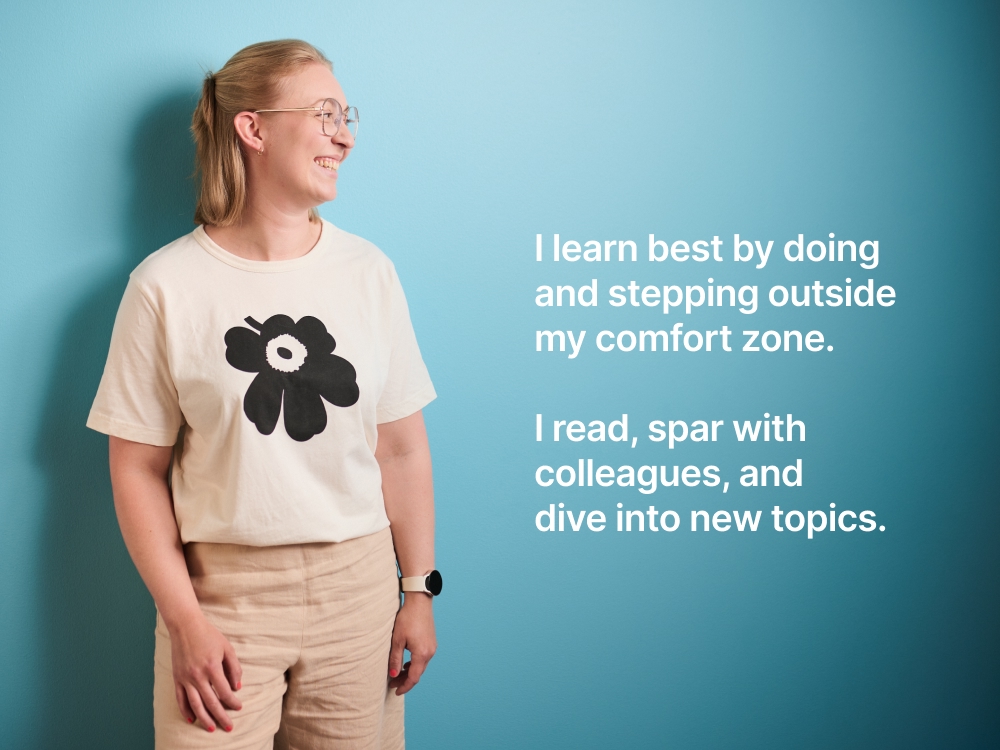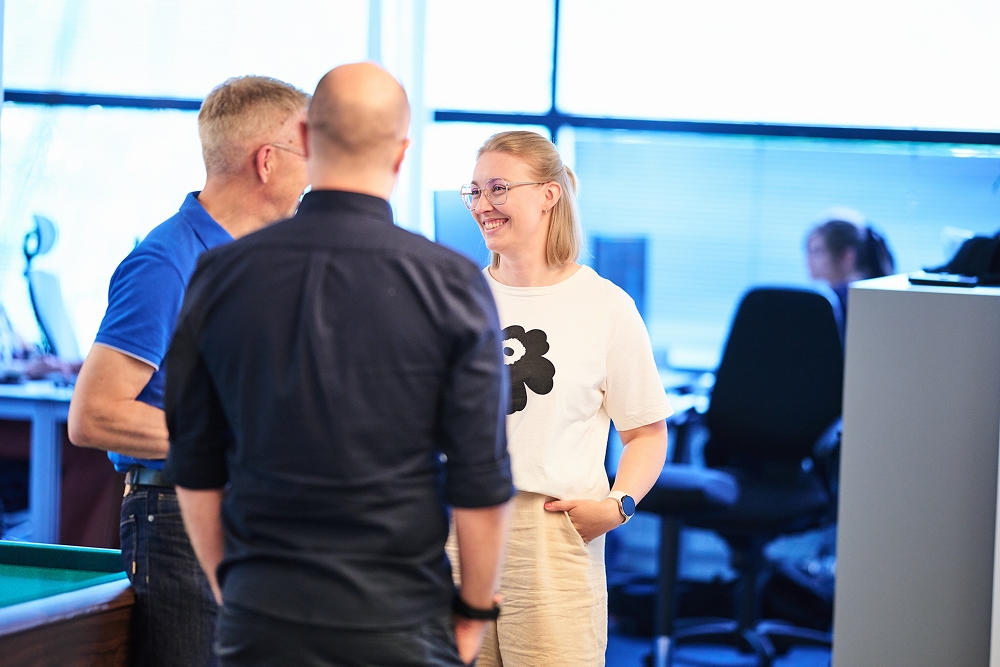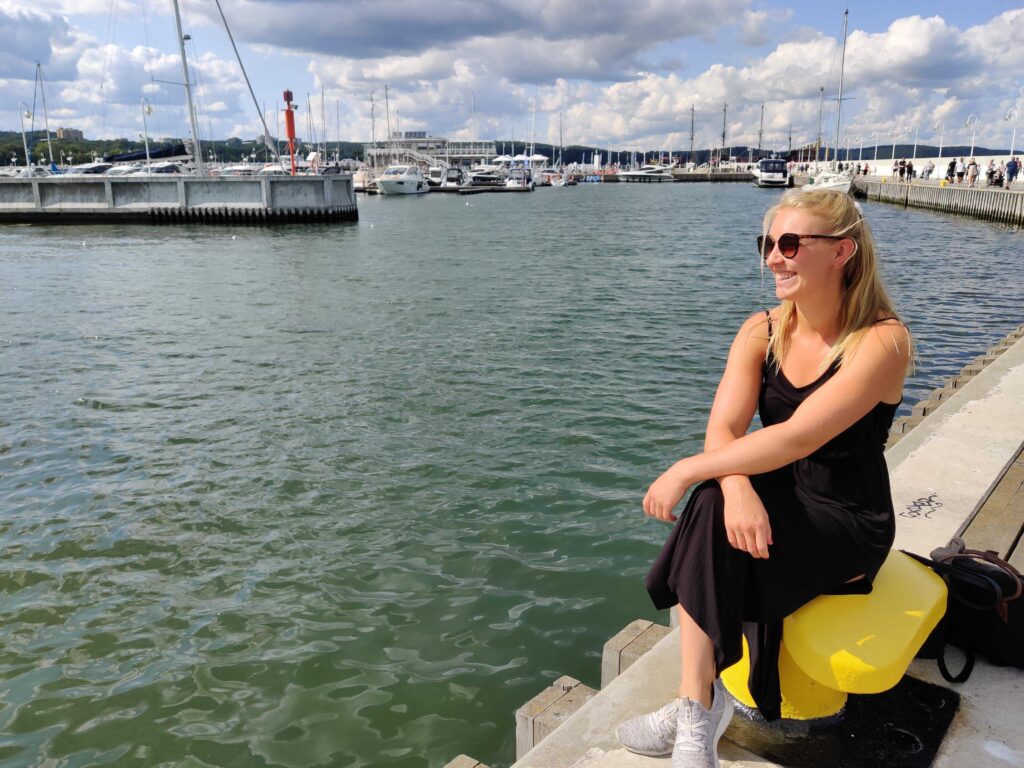The stereotypical coder starts programming as a child. For Aalto University graduate and current Lead Developer Jenni Pajukoski, the story went differently. She began coding at university, and ending up in the field was partly a coincidence. Yet, client satisfaction is top-notch and the work flows smoothly. How is that possible?
Jenni graduated from Aalto as a full stack developer in 2018. She has worked in both full stack roles and purely frontend development across several industries. Currently, Jenni is a Lead Developer in a client project: she is responsible for a React-based web frontend, a React Native mobile app, as well as guiding the development team’s daily work, setting technical directions, and ensuring quality.
How did you become a software developer? Where did it all start?
— I originally applied to Aalto University for a different program and listed computer science as a backup. After the first year, I became so excited about programming that I never switched. The choice has proven right: software development combines problem-solving, hands-on creation, and continuous learning.
In the beginning, programming studies started with Python. Web development was offered, but React was not yet part of the curriculum. However, one group project chose React as its technology, and it quickly became a central tool in her professional work as well.
After graduation, Jenni first worked in a product company and later moved to consulting in order to gain experience with a wider range of industries, products, and architectures.
What’s the best part of your job? What motivates you?
— The most rewarding thing is when the work has an immediate impact on users and the business: a new feature, better usability, or improved performance. I enjoy problem-solving both on a technical level and in user-centered product development.
— I get to work with many technologies and learn constantly. Successes in solving challenging, new problems are especially motivating. I also enjoy close collaboration with design, business, and other developers.
What do you think is typical of the software industry?
— Continuous learning and adapting to changing technologies. Adopting new tools and methods is everyday life. Collaboration with different specialists is important, and the best products are born in multidisciplinary teams.

What challenges have you faced?
— In the early years, the biggest challenge was trusting my own expertise. Diverse projects, successes, and constructive feedback have since strengthened my professional confidence.
— Among technical challenges, the most memorable was setting up a cloud environment from scratch, alone. With no prior experience, the work required fast learning, but success was all the more rewarding.
What are you most proud of? Where have you succeeded?
— The team’s shared successes – I’m proud of situations where we’ve taken a feature from idea to production with quality and on schedule. In my current lead role, the most meaningful part has been supporting the team: creating common practices, developing a code review culture, and ensuring new developers get up to speed quickly.
How do you develop your skills?
— I learn best by doing and stepping outside my comfort zone. I read, spar with colleagues, and dive into new topics.
— I also make use of generative AI as a daily tool: for brainstorming, comparing implementation alternatives, and boosting efficiency. AI doesn’t replace design or code reviews, but it speeds up routines and frees time for quality.
How do Teamit’s values (attitude, openness, trust, enthusiasm) show in your work?
— Already in my first assignment I was given a lot of responsibility, which reflects strong trust within the organization. Together we always strive for the best possible outcome, and we maintain continuous dialogue about goals, challenges, and learning.
Your tips for students and career changers entering the field?
— Backgrounds can vary. The most important thing is curiosity and the ability to learn. Build strong fundamentals and learn to write clear, testable code. Beyond technical skills, social skills, project management, and understanding customer and user needs are also essential for a software developer.
Future plans?
— In addition to coding, I’m interested in developing people and processes: lead roles where I can combine technical expertise, mentoring, and product-oriented thinking.
— I also plan to deepen my coding skills and the use of generative AI in everyday work. My dream is to one day help develop applications in healthcare and medicine where technology concretely improves people’s lives.


